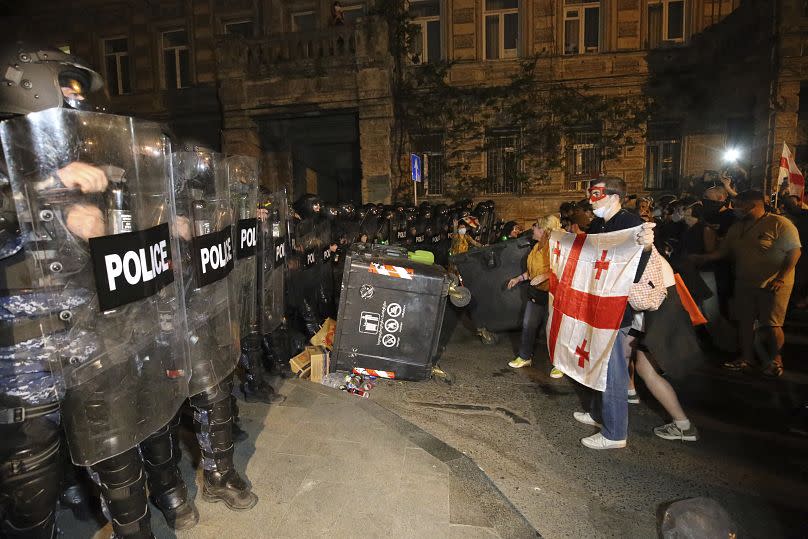Police beat and arrest Tbilisi protesters as parliament debates controversial transparency law

Thousands of people have been out on the streets of the Georgian capital Tbilisi as the country's parliament debated the second reading of a highly controversial transparency law.
With public antipathy toward the so-called "Russian law" running high, police were sent to forcibly disperse the demonstrators. Tear gas and stun grenades were used against the crowd, while several protesters were arrested and beaten – among them leading opposition politician Levan Khabeishvili, who was shown on TV with serious facial injuries.
The divisive "Russian law" requires media and non-commercial organisations to register as being under foreign influence if they receive more than 20 per cent of their funding from abroad.
Critics say the bill, which closely resembles legislation in effect in Russia, undermines democracy and could derail the country’s chances of joining the European Union.
"We do not want the Soviet regime that our parents have experienced," said protester Kato Salukvadze. "I think that everyone should be in the streets and say no to the Russian law and yes to Europe."

Georgia has been a candidate country for the European Union since 2023 and support for joining the bloc among Georgia’s four million citizens is as high as 81%, according to a 2022 poll by the National Democratic Institute.
But supporters of the bill – proposed by the ruling Georgian Dream party – say ensuring transparency is crucial in the fight to maintain national sovereignty.
"I promise you that we will overcome all adversity, strengthen our sovereignty, maintain peace, boost Georgian economy and become part of the EU in 2030," said Bidzina Ivanishvili, the founder and honorary chair of Georgian Dream, speaking at a rally on Monday.
Demonstrations have been ongoing in Georgia for weeks since the ruling party introduced the law in parliament, with scenes reminiscent of the public reaction when an almost identical bill was brought and then abandoned in 2023.
Among the law's top critics is Georgian President Salome Zourabichvili, who says she will veto the law if it is passed by parliament. However, the ruling party can override that veto if it can gather 76 votes to pass it.


